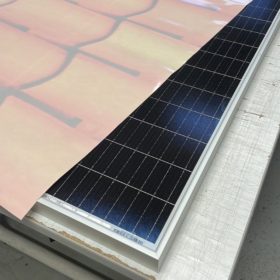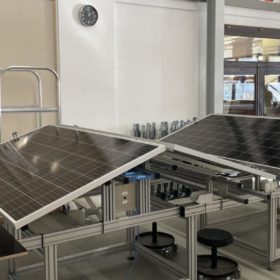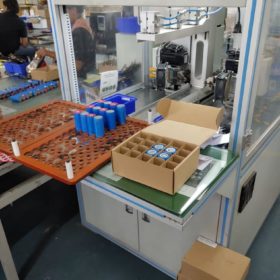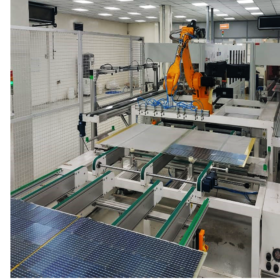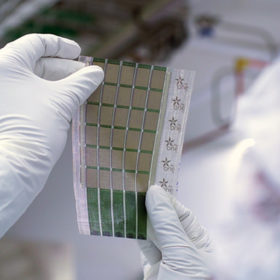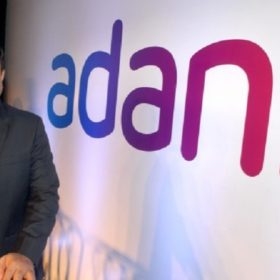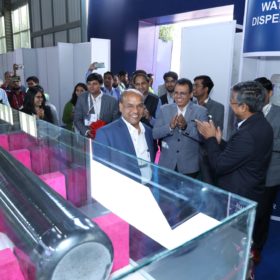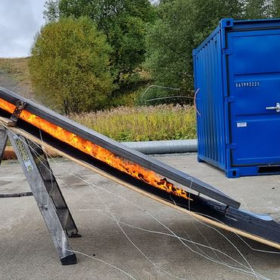Roadblocks to rooftop solar
India is long way behind its rooftop solar target of 40 GW by 2022 with just 10.4 GW installed till September (Source: Bridge To India). Amplus Solar team speaks to pv magazine about factors holding back rooftop solar development in India.
Customizable sticker to turn solar panels into advertising billboards
An Italian startup has created a fully recyclable sticker that can be used to cover solar panels on rooftops or facades. It replicates high-definition images that can help to improve the aesthetics of solar arrays or turn PV facades into advertising billboards.
New foldable solar system for rooftop applications
German manufacturer Kopp has developed an easy-to-install, four-module foldable PV array. The system uses n-type TOPCon solar modules with outputs of 430 W and efficiency ratings of 22.02%
Adar Poonawalla-backed homiHydrogen to set up 1.5 GW electrolyzer fab in India
The $50 million electrolyzer factory is expected to start production in 2023. It will produce all four types of commercially available electrolyzers.
Neuron Energy to invest INR 50 crore in lithium battery pack business
The Mumbai-headquartered lithium battery manufacturer plans working capital finance of INR 35 crore and equity investment of INR 15 crore to increase production capacity and fulfil orders from large OEMs.
Saatvik appoints solar panel distributor for Rajasthan
Haryana-based Saatvik Solar has appointed Etrica Power as the distributor of its solar panels in the Rajasthan region.
MIT scientists produce new organic photovoltaic fabrics
US researchers have developed a thin-film organic solar module on a vapor-deposited releasable substrate made of parylene. The device could be used as a wearable fabric, or to bring solar generation to remote locations.
Australia’s Cavendish Renewable signs hydrogen electrolyzer agreement with Adani arm
The Melbourne-based electrolyzer specialist has signed a technology development and licensing agreement with Adani New Industries Ltd.
Adani unveils India’s first silicon ingot
At Intersolar India 2022 expo, Adani Solar unveiled a monocrystalline silicon ingot produced at its Mundra facility in Gujarat.
PV system fires potentially exacerbated by gap between solar panels, rooftops
Norwegian researchers have published a new study showing that the space between solar panels and rooftop surfaces might play a critical role in contributing to PV system fires.

